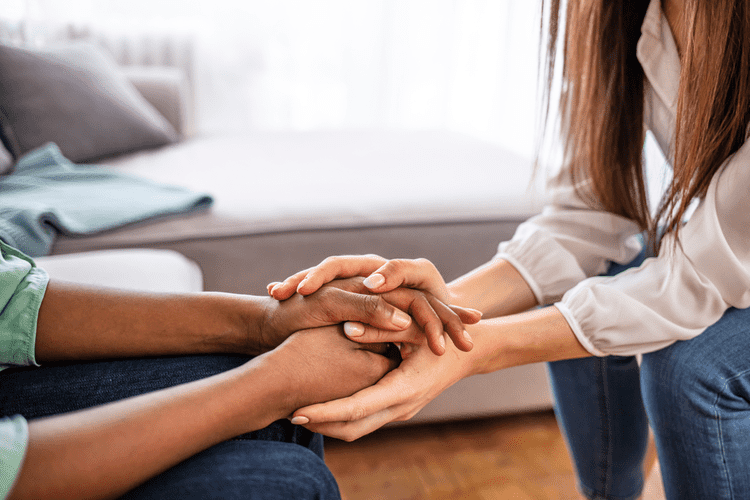The GROW With Your Team worksheet specifically helps with group development, team cohesion, and learning to set and achieve common goals. This can be a wonderful activity to use to start a group because it allows members’ active participation in accomplishing objectives and the healing process. Our article on Self-Esteem Therapy provides more ideas to improve self-esteem and growth activities that can be applied to both individual and group therapy sessions. Mindfulness group therapy allows individuals to come together in a group setting to develop and practice mindfulness skills and draw benefits from the shared experience with others. Role-play can be a great activity for acting out and resolving conflict in a healthy way.
Substance abuse group activities aimed at identifying high-risk triggers often involve group discussions, reflective journaling, and shared experiences. By recognizing these triggers, participants gain insight into their vulnerabilities and can develop proactive strategies to avoid or cope with these situations. Interactive group therapy games and exercises can be highly engaging and effective in promoting camaraderie, teamwork, and skill-building among participants. These activities provide a structured and enjoyable approach to therapy sessions, making them more accessible and encouraging active participation. Yoga and meditation provide a holistic approach to recovery by integrating the mind, body, and spirit. These practices promote self-awareness, reduce anxiety and depression, and enhance overall well-being.
Top 30 Substance Abuse Group Activities
In group therapy, individuals can learn from one another’s experiences, share coping strategies, and gain valuable insights into their recovery journey. In conclusion, the utilization of effective substance abuse group therapy activities can significantly contribute to the recovery journey. Through these activities, individuals can find support, develop valuable coping strategies, and foster connections that promote lasting sobriety and well-being.
A 3-page worksheet for identifying and managing substance use relapse triggers. A letter template for individuals entering long-term residential treatment for substance use, to be opened and read at treatment completion. A 3-page worksheet for substance use recovery for planning leisure activities and enhancing wellness/spirituality. A 1-page worksheet for affirmations, positive self-talk, and problem-solving strategies for daily challenges.
Find Addiction Treatment Today
On the contrary, it should serve as a prompt to reach out to their physician or healthcare provider promptly. These professionals can help individuals resume treatment, explore different treatment modalities, or adjust their rehabilitation approach. Modern addiction treatments are designed to address the immediate cessation of substance use and mitigate the risk of relapse.
In 2010, Aaron transitioned into behavioral health with Caron Treatment Centers. At Caron, Aaron was the Corporate Business Development Director responsible for creating national substance abuse group activities visibility substantiable revenue growth and training of the business development team. Aaron was also a member of the Senior Leadership Team at Caron Treatment Centers.
Learn About Self-Care
A 2-page handout that describes seven uncommon grief experiences, such as delayed or disenfranchised grief. A to-do list of kind deeds with blank spaces to write in your own ideas for spreading kindness. A 2-page handout with journal prompts for recovery, based on material from The Sober Survival Guide (created with the author’s permission). The prompts include questions about values, potential, expectations, and more. Guide the group to take a few deep, slow, grounding breaths before beginning this exercise. Ask them to be aware of the sensations in their foot, ankle, legs, and entire body as they attempt to remain balanced.

Sharing personal stories fosters a sense of connection, empathy, and encouragement. Group mindfulness practices and relaxation techniques, such as yoga or tai chi, significantly benefit people in all stages of recovery, offering a form of self-care. The kinds of group activities depend on the theoretic approach that the treatment https://ecosoberhouse.com/ professional uses as well as the group members’ needs, background, age, and other factors. A 6-page worksheet for describing problem areas, identifying goals, and exploring what has (and has not) been helpful in the past. A list of group openers for substance use groups; can also be used in individual counseling sessions.
Mindfulness Exercises
Engaging in expressive arts can be a transformative experience for individuals in substance abuse recovery. Creative activities provide a non-verbal outlet for emotions and enable participants to explore their inner world in a safe and supportive environment. Group therapy, on the other hand, offers a different level of support and connection.
- It is intended for a child to complete, and the results can be discussed as a family to facilitate understanding and come up with solutions for family problems.
- A 1-page worksheet for identifying things that promote addiction and ways to get rid of or avoid these things.
- Instruct each pair to blindfold one member and tell the other member to guide them around the room in search of a particular object or objects.
- Read our article that addresses how to apply ACT therapy in group settings.
Chris has worked as a business development professional in the addiction treatment industry since 2009. During that time Chris has always aligned himself with treatment programs that have done excellent work for those struggling with substance use disorder. He has had the privilege of working in a variety of geographic regions and levels of care. He truly enjoys the satisfaction of helping people and their families find the program that will best suite their clinical needs, giving them the best chance at successful outcomes. Group therapy is an important part of the recovery journey for many people who are overcoming addiction and going through substance abuse treatment. As well as helping people understand their own addiction, triggers, and coping mechanisms, it also functions to improve self-esteem.